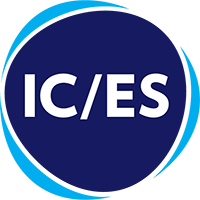Partnering to Support Ontario First Nation Communities
CHILD-BRIGHT announces new network project to better support children with prenatal opioid exposure and their families
The CHILD-BRIGHT Network is pleased to announce funding for a thirteenth project: Prenatal Opioid Exposure and Neonatal Abstinence Syndrome: A Research Project with Indigenous Peoples in Ontario First Nations. This new network project joins our BRIGHT Beginnings research theme, which funds projects that aim to optimize brain and developmental outcomes.
The project comes from a need identified by First Nation communities in Ontario and is led by CHILD-BRIGHT Principal Investigators Astrid Guttmann, Chief Science Officer at ICES and paediatrician at The Hospital for Sick Children; Serene Kerpan, Assistant Professor, Faculty of Health Sciences at the University of Ontario Institute of Technology (UOIT); and Jennifer Walker, Canada Research Chair in Indigenous Health at Laurentian University and Indigenous Health Lead at ICES along with individual community leaders and the Southern Ontario Community Wellness Development Team (CWDT).
Astrid Guttmann
Serene Kerpan
Jennifer Walker
“In 2017, the CWDT team was contacted by First Nations who were concerned about the health of school-aged children with prenatal opioid exposure in their communities,” says Brenda Johnson, Mental Health Facilitator at the CWDT. “We approached ICES for information and support. From this came the development of a partnership between the CWDT, researchers at ICES and UOIT, and professionals who have experience working with Indigenous communities on complex health research topics.”
Neonatal abstinence syndrome (NAS) is a withdrawal syndrome observed in the babies of individuals who either used opioids or were treated for opioid dependence during pregnancy. Prenatal opioid exposure has risen substantially over the past two decades and can have lasting health impacts for infants and children, including potential long-term neurodevelopmental impairments such as cognitive, motor and/or social developmental impairments.
““By working closely with First Nation communities, we strive to better understand prenatal opioid exposure so that future community- and culturally-appropriate interventions can be developed to better support children with prenatal opioid exposure and their families.” ”
The team, which is composed of researchers, community leaders, and community partners, is working in partnership to achieve this by:
Building strong relationships with First Nation communities in the Southern Ontario CWDT catchment area
Investigating prenatal opioid exposure and its longer-term neurodevelopmental impairments
Gathering data from the community, including culturally-specific data, in anticipation of the co-development of a community-based intervention to address the longer-term child and family impact of prenatal opioid exposure.
In June 2018, communities were invited to attend one of two community-based facilitated information and planning sessions, held respectively in Rama and London, Ontario. A total of 56 delegates from 23 Ontario First Nation communities attended, and teleconference presentations held in the fall of 2018 helped the team reach a total of 33 First Nation communities within the CWDT catchment area. To date, 11 communities have confirmed their participation in the project.
Communities will have the opportunity to participate in one or both arms of the project:
Qualitative research to better understand prenatal opioid exposure through focus groups and individual interviews, and/or
Quantitative research to determine the incidence rates and trends over time of prenatal opioid exposure and neonatal abstinence syndrome at a community level and aggregated for all participating communities.
“We are happy to welcome the Prenatal Opioid Exposure and Neonatal Abstinence Syndrome team to CHILD-BRIGHT and value the perspective and approach to patient-oriented research that their team brings,” says Frank Gavin, Director of Citizen Engagement at CHILD-BRIGHT. “Often in patient-oriented research, engagement is initiated by researchers, but in this team’s case, the research project was developed in response to First Nation communities seeking to better understand and meet the needs of children with prenatal opioid exposure. Community members initiated and continue to inform the project. We value this approach as well as the wisdom and the knowledge that this team will bring to CHILD-BRIGHT.”
For more information on this project, contact:
Aggie Mazzucco
Project Manager & Research Coordinator
Email






